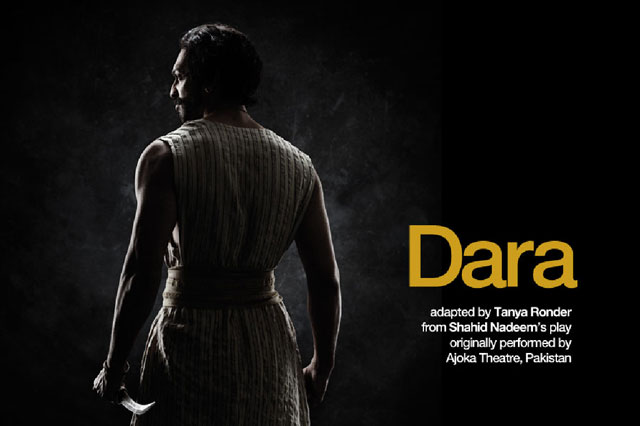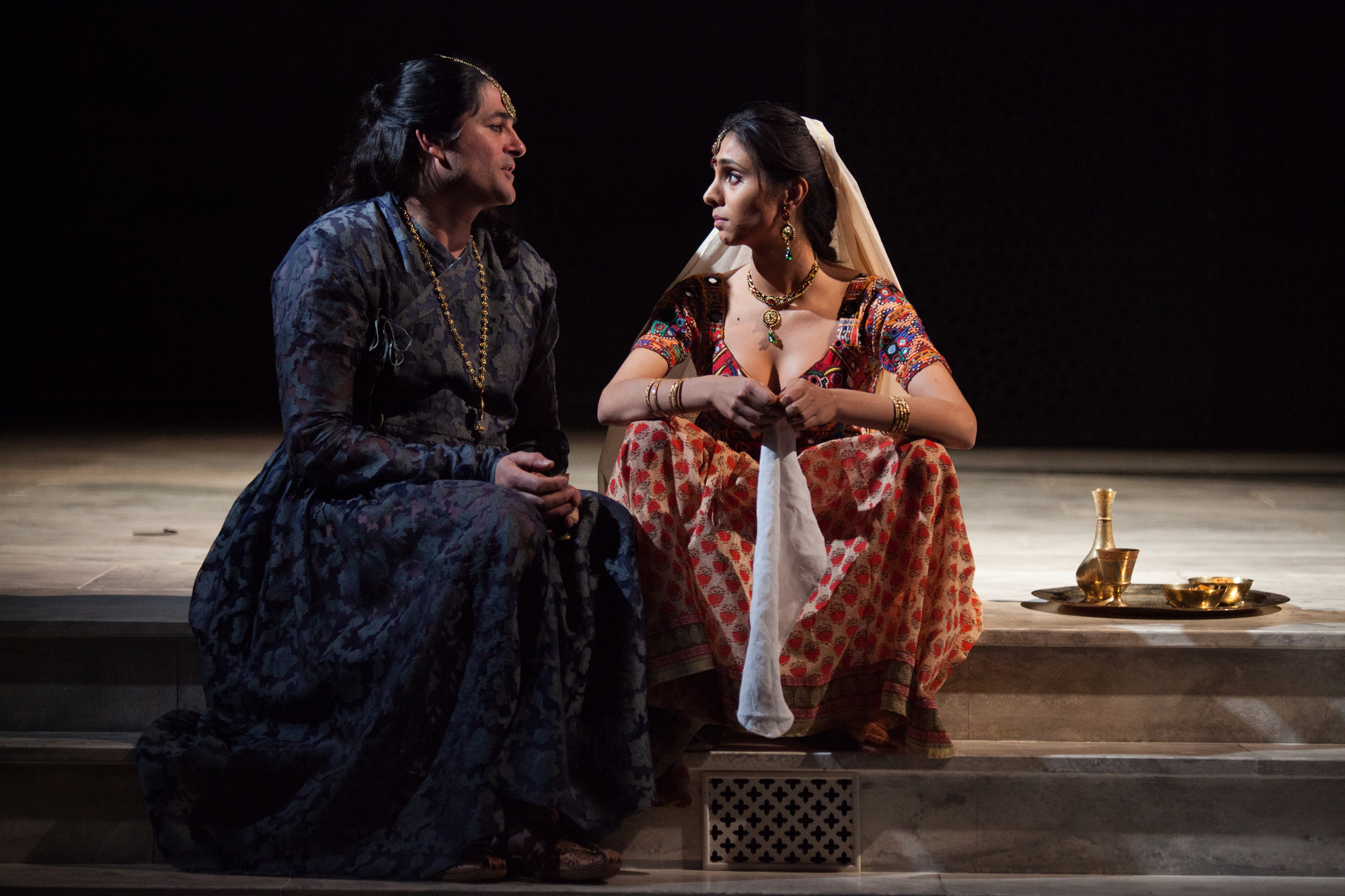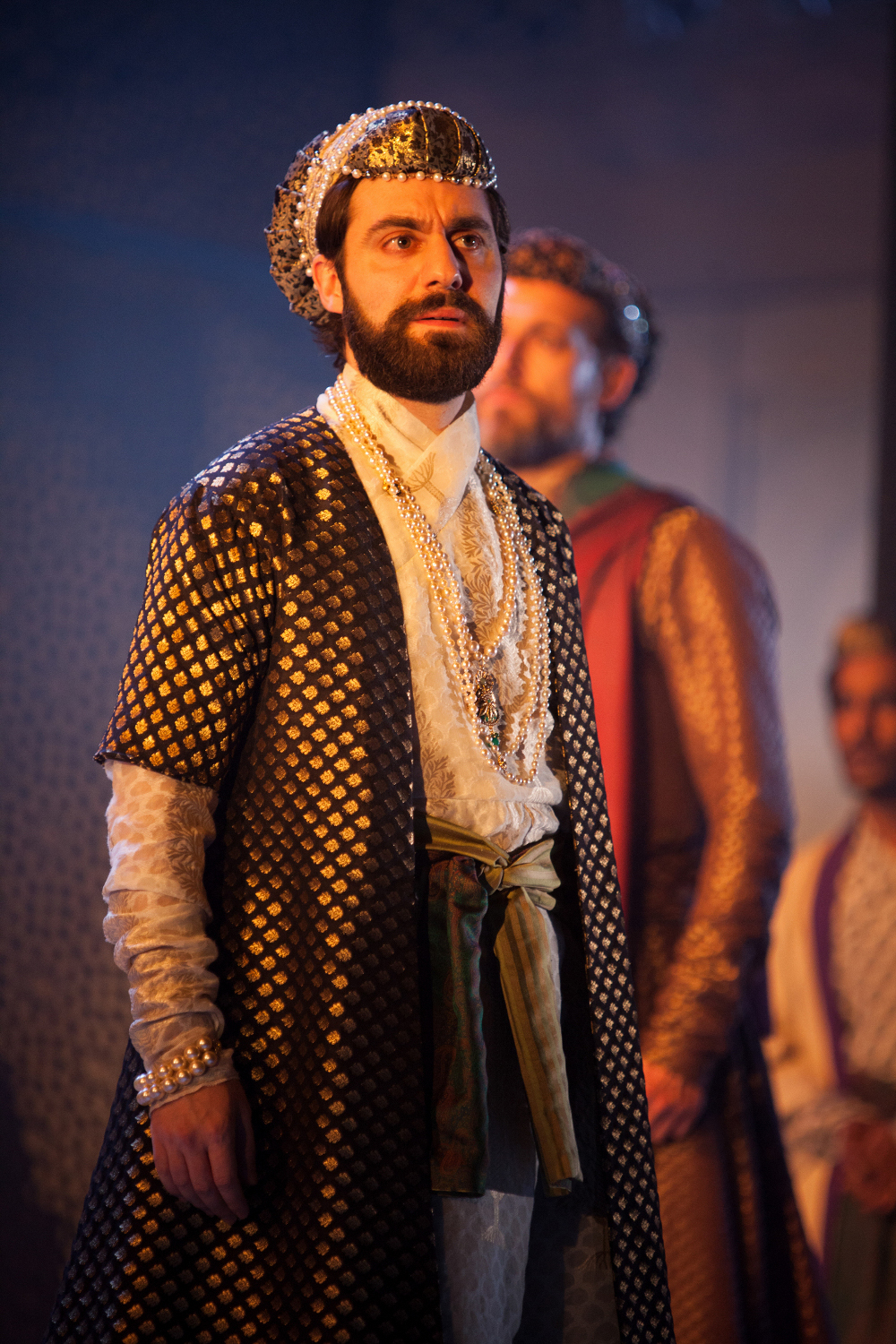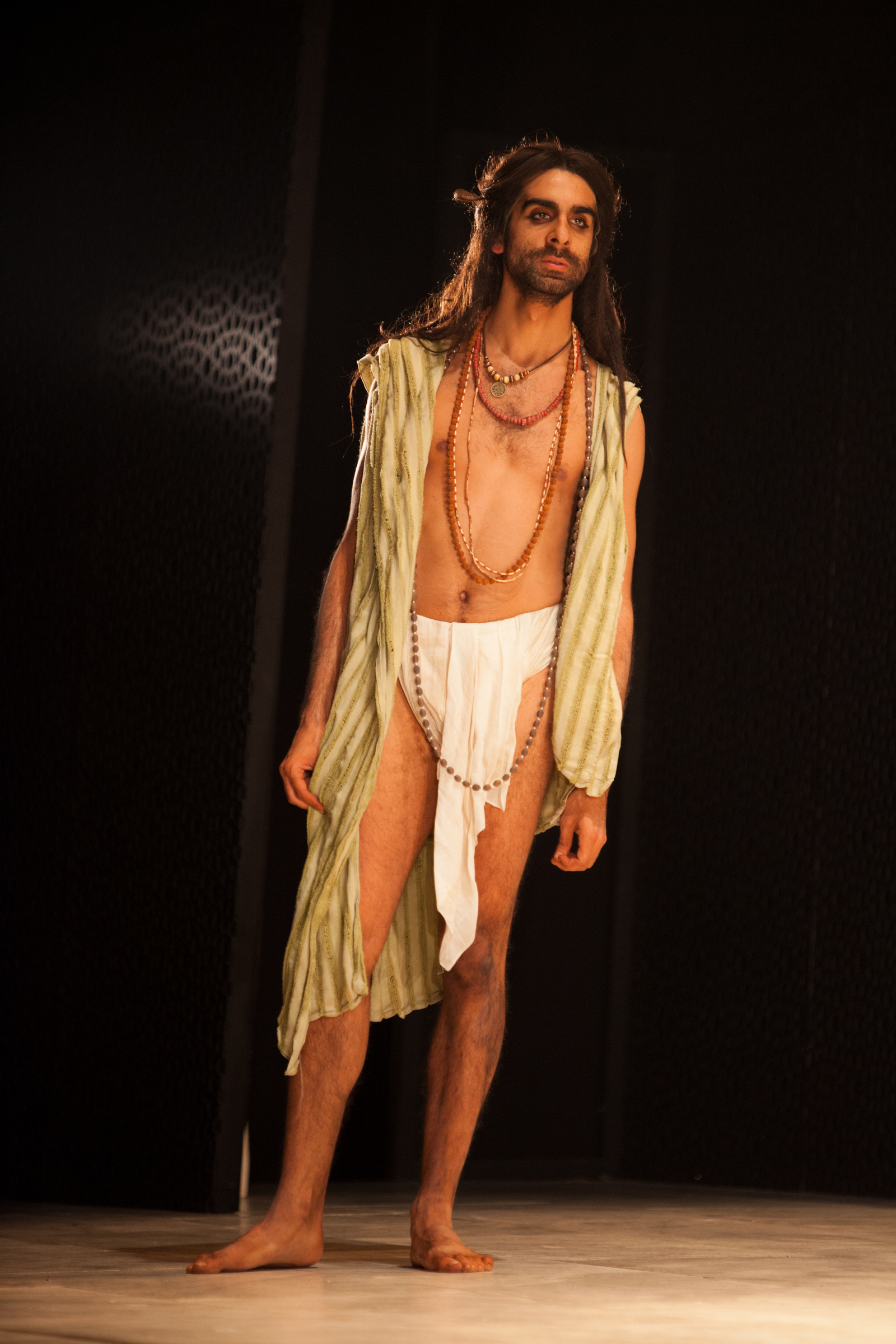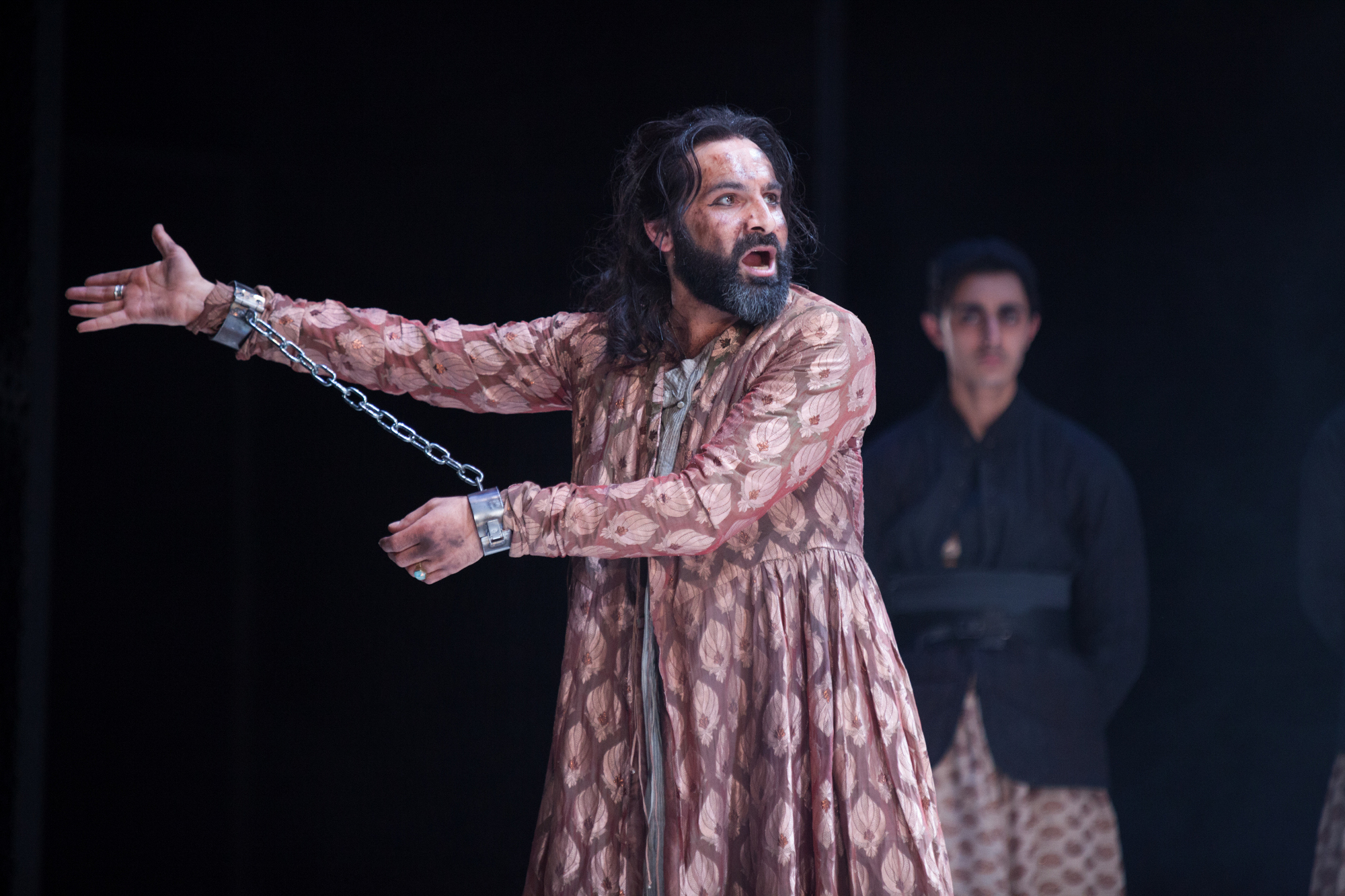Dara Theatre Review: Tanya Ronda’s adaptation of 17th century Mughal India
Punjab2000 journalist Amrit was invited to the press viewing of the tantalising theatre performance of Dara at London’s National Theatre on 27 January 2015.
This is Tanya Ronda’s adaptation of the Shahid Nadeem version of Dara. Ronda captured the Princes’ lives from their cradle to the grave and portrays the international repercussions of an intense domestic drama.
Dara is set in 1659 Mughal India – a place of opulence and extravagance depicting the royal magnificence of music, drugs, enuchs and harems of the Imperial court.
For many Asians the story of the Mughal empire is a known movement relevant to their historical heritage. However the west are more likely able to familiarise themselves with this story through the magnificent monument that is the Taj Mahal. Mumtaz Mahal, the wife of Shah Jahan and the mother to his children, was the inspiration of the still-standing Taj Mahal, which Shah Jahan had commissioned once his wife died giving birth to their 14th child.
Two of the emperor’s sons, Dara and Aurangzeb, fought for their ownership of the kingdom as heirs to the Mughal Empire. Shah Jahan’s illness ignited the thirst for power between the four princes – Shah Suja, Murhad Baksh, Dara and Aurangzeb.
Though Dara and Aurangzeb were the only two realistically in chance of becoming successors; Dara had the love of his people and adoring father while Aurungzeb held a completely opposite vision for India. The influence of Islam inspired poetry in Dara however triggered puritanical rigour in Aurungzeb. The performance explores the family history through memories that spited Aurangzeb’s childhood of his father’s rejection which was influenced by the naked-fakir’s prophecy which foretold which of his son’s would betray him.
Shah Suja was defeated in the battle of Bahudarpur in Feb 1658 by Dara’s eldest son Sulaiman Shikoh who lead Shah Jahan’s army. Though this victory was triumphed when Aurangzeb took over accompanied by Murhad at the battlefield of Samugarh, near Agra in May 1658. Aurangzeb then took over Agra fort and overthrew of Shah Jahan in June 1658, imprisoning him and his sister Janhara at the fort for seven years.
Aurangzeb was the last of what are now referred to as the Great Mughal Kings.
After being defeated, Dara took off to Delhi and Lahore, then Multan and Sindh. Reaching Kathiawar, Shah Nawaz Khan who was the governor of Gujarat helped Dara to recruit a new army. Dara hoped to persuade the fickle but influential Rajput Maharaja Jaswant Singh to support him stand against Aurangzeb’s fanatical remorselessness, though was routed by Aurangzeb’s followers near Ajmer March 1659. Dara found refuge in Sindh after this under Malik Jiwan. Dara had on many occasions saved Malik Jiwan but was betrayed by him and was handed to Aurangzeb’s army in June 1659.
Dara was captured and paraded through the streets of Delhi on filthy elephant with poor health in chains. Dara was considerate and had the love of the people. Nobles and clergy were called by Aurangzeb in response to the political threat Dara posed as a prince popular with the common citizens and was accused of being a traitor from Islam for his deep research and compassion for other faiths. Dara was trialled and executed on the night of 20 August 1659 for apostasy – the abandonment of his religion.
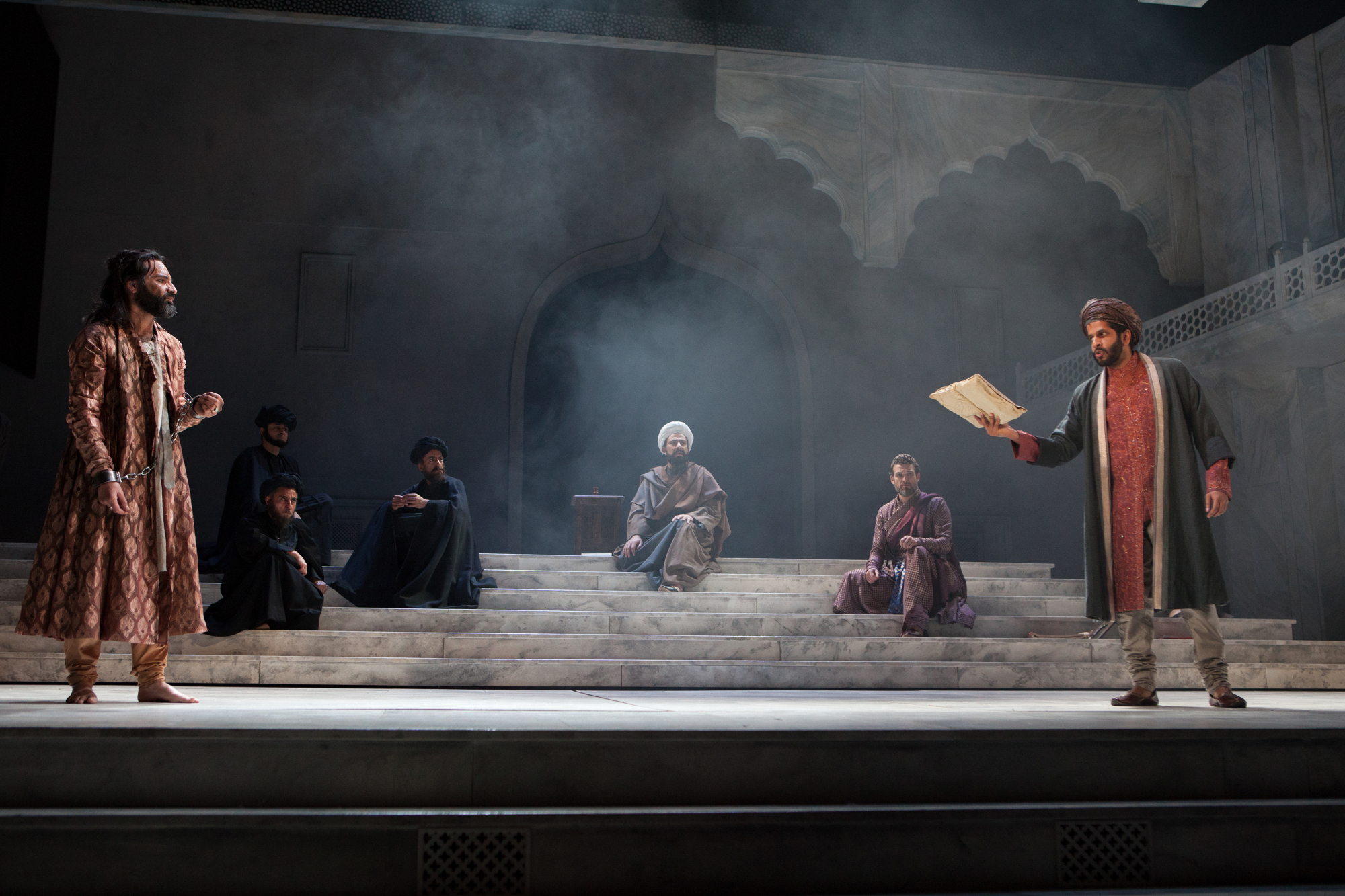
Vincent Ebrahim as Dara and Prasanna Puwanarajah as Prosecutor Talib and the company of Dara by Ellie Kurttz
The play explores the themes of rivalry between brother and sister. The beloved Janhara is shown to adore her older brother Dara just as she does her father, whilst Roshanara’s loyalty lies with Aurangzeb.
Dara Shikoh was part of the Sufi movement and was a famous Sufi poet of the time, as was his niece Princess Zeb-un-Nissa. The Princess was also known as Makhfi, and was the eldest daughter of Aurangzeb. He had imprisoned her for 20 years and eventually murdered like her uncle and his mentor, the naked Sufi-fakir, Sarmad.
Sufism is the inner circle or spiritual path of Islam and Dara was a valid follower of the famous Lahori Qadiri Sufi saint, Hazrat Mian Mir. This belief was introduced to Dara by Mulla Shah of whom was another Sufi poet. Mulla Shah was widely respected by an array of communities that he was invited to lay the foundation stone of the Golden Temple in Amritsar, Punjab by the Sikhs.
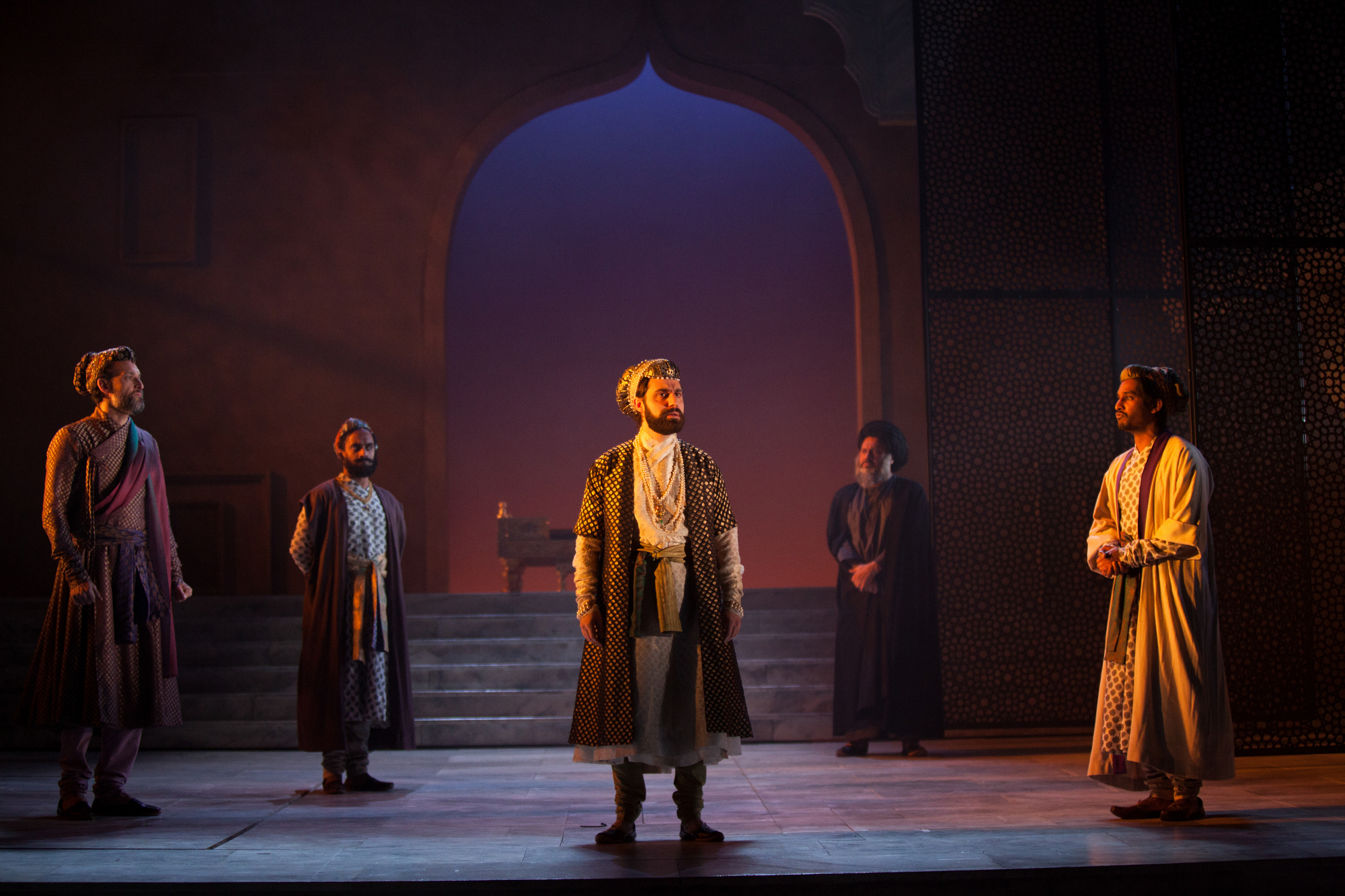
Nicholas Khan (Mir Khalil), Esh Alladi (Gvernor Khan), Sargon Yelda (Aurangzeb), Simon Nagra (Mullah Farooq), Rudi Dharmalingham (Danishmand) by Ellie Kurttz
Dara had then built a relationship between the seventh Sikh Guru, Guru Har Rai as he devoted much time and efforts in discovering the mutual mystical language between Islam and Hinduism, and of course Sikhism which is a hybrid of the two. In searching for the commonalities between other religions and Islam, he completed the translation of 50 Upanishads to Persian from the original Sanskrit texts in 1657 so it could be read by Islamic scholars.
Like Princess Zeb-un-Nissa, who was known as Makhfi, Dara often used Quadiri as his Takhallus.
Many of Dara’s works have been left behind and are popular in India today including his Divan of ghazals, five works of prose on Sufism and mysticism. Dara’s work titled Majma al-Bahrain translates to The Minging of the Two Oceans which explains the mystical similarity of Sufism and Vedanta.
Dara was a lover of the fine arts, such as painting, calligraphy and prose, music and dance which was an interest frowned upon by his sibling Aurangzeb.
A collection of his works from the 1630s till death was accumulated as The Dara Shikoh album, inscribed to his wife Nadira Banu reading: “to my nearest and dearest wife Nadira Begum”. It remained in her possession until her demise and was then taken to the royal library where any inscriptions connecting them to Dara Shikoh had been deliberately erased.
- Zubin Varla as Dara by Ellie Kurttz
Ronda’s adaptation of Dara retells the wonderful story of Dara Shikoh and his exploration of music and the arts to focus on the greater theme of spiritualism – A truly inspiring production that digs deeper at the reasoning behind religious teachings and customs of other faiths, ultimately drawing similarities that link religions together through the belief in a supreme higher existence.

